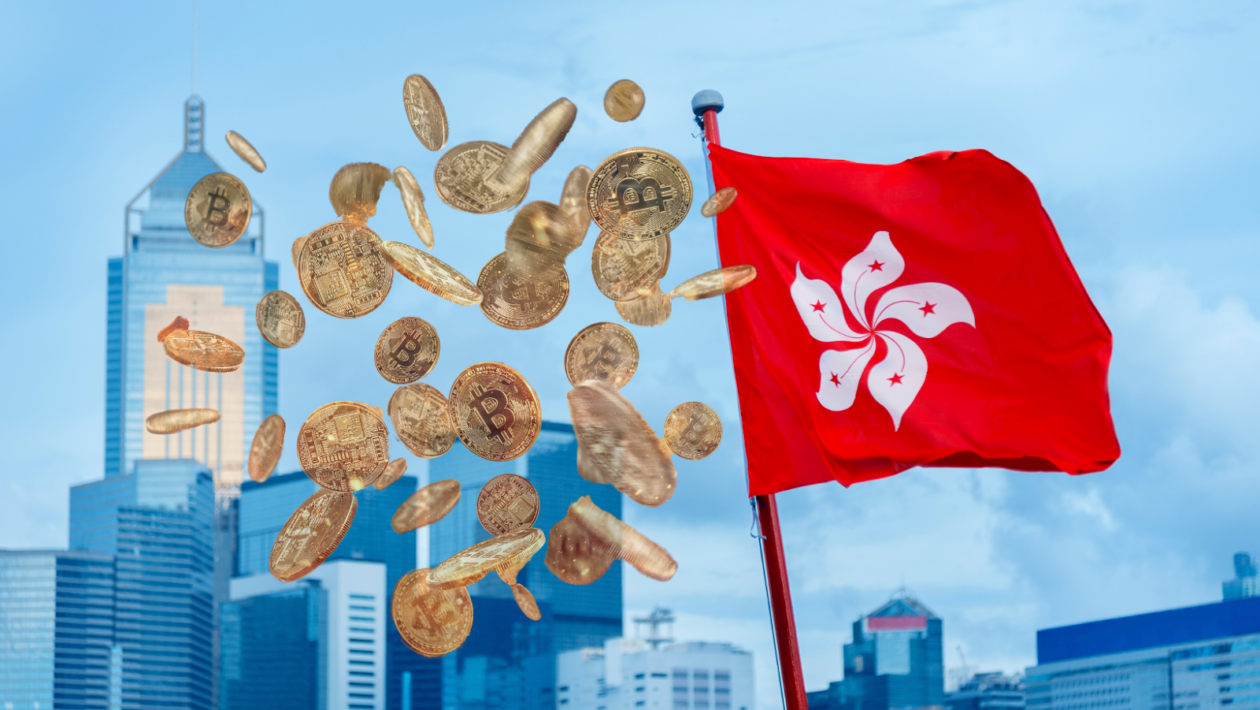In this issue
- DCG: End of empire?
- Lido DAO: Energized by Ethereum
- Hong Kong: Crypto mojo
From the Editor’s Desk
Dear Reader,
It’s often said that good things come in threes. Developments in the cryptocurrency industry in the past few days suggest that the reverse may also be true.
The murky goings-on around Barry Silbert-led crypto empire Digital Currency Group (DCG) may not have attained FTX- or Terra-like levels of gut-wrenching awfulness — at least not at the time of writing. But the news that U.S. federal prosecutors are digging into transfers between DCG and one of its subsidiaries may presage a third nausea-inducing twist in the shakeout that has convulsed the crypto industry in recent times.
If there’s a bright spot amid the potential for another big crypto collapse, it’s that authorities appear to have been paying attention to possible problems at DCG for at least two months — crucially, before the implosion of FTX. One can only hope that justice, should its application be required, be served swiftly and that crypto investors are spared yet more undue suffering.
Meanwhile, proof of the endurance of the digital asset industry continues to emerge, even amid its numerous recent woes — this time in the form of another eagerly-awaited Ethereum upgrade. The Shanghai hard fork, as it’s known, promises to address concerns among investors staking ETH over whether they can withdraw their assets, and it has prompted a spike in interest in ETH-linked products and services as well as sharp price upticks for a number of tokens.
And in good news for a city that has needed some for a while, financial authorities in Hong Kong have reiterated their determination to reclaim ground lost to other jurisdictions — chiefly Singapore — in the crypto hub rankings. Hong Kong has a long history of picking winners, despite the privations inflicted on the city and its people in recent years, and its bet on digital assets is not on a whim.
We welcome more of that confidence as the industry works through its issues.
Until the next time,
Angie Lau,
Founder and Editor-in-Chief
Forkast
1. Here we go again?

By the numbers: DCG — over 5,000% increase in Google search volume.
Crypto-focused conglomerate Digital Currency Group (DCG) is under investigation by the U.S. Department of Justice as well as the Securities and Exchange Commission (SEC) over questionable transfers between DCG and a subsidiary, according to a Bloomberg report that cited unnamed sources.
- Although authorities haven’t made any accusations of wrongdoing, the investigations come a week after DCG reportedly shut down a wealth management subsidiary named HQ.
- DCG, among the largest companies in the cryptocurrency space, owns crypto lender Genesis Global Trading, digital currency asset management giant Grayscale, crypto news outlet CoinDesk, and Foundry, the world’s largest Bitcoin mining pool.
- DCG has been in the spotlight over debt issues stemming from the collapse of crypto hedge fund Three Arrows Capital last year.
- DCG chief executive Barry Silbert got into a Twitter spat with crypto exchange Gemini co-founder Cameron Winklevoss last week over claims that DCG had borrowed US$1.675 billion from Genesis that it hadn’t repaid, which Winklevoss said had led to Gemini users having hundreds of millions of dollars in assets frozen at Genesis.
- In an open letter posted on Twitter last Monday, Winklevoss wrote that Genesis owed Gemini users US$900 million and claimed that the funds had been frozen by Genesis because it lacked liquidity due to DCG’s failure to repay the loan.
- Silbert responded: “DCG did not borrow $1.675 billion from Genesis” and added that “DCG has never missed an interest payment to Genesis and is current on all loans outstanding; next loan maturity is May 2023.”
- In a letter to shareholders in November, DCG said it had taken out a US$575 million loan from Genesis and that it owed Genesis a US$1.1 billion promissory note to cover a liquidity crunch due to exposure to Three Arrows Capital.
- Genesis paused withdrawals on Nov. 16 due to “abnormal withdrawal requests” while revealing that it had US$175 million locked up in the bankrupt exchange FTX.
- Gemini also halted withdrawals of its interest-bearing Earn program, which used Genesis as a trading partner. Last month, investors filed a class-action lawsuit against the company for alleged fraud and violations of securities laws.
Forkast.Insights | What does it mean?
The crypto contagion is still spreading. Although much of the focus of the DCG story has been the very public spat between two of the crypto industry’s most Wall Street-friendly companies — and leaders — one key development is that authorities have stepped in quickly.
According to Bloomberg, U.S. authorities have been looking into the practices of DCG since before the collapse of FTX. And even though no formal accusations of wrongdoing have (yet) been made, it’s heartening to know that regulators are becoming more active in the crypto industry and holding participants that break the law to account.
But perhaps the biggest takeaway from the saga is how one of crypto’s founding ideals appears to be faltering. “WAGMI,” or “We’re all going to make it,” has been a maxim and rallying cry among crypto believers for years. It also became a slogan for a group of crypto enthusiasts that bought the English Football League club Crawley Town.
More recently, the FTX collapse has led some companies in the sector to turn against one another for advantage and survival. For instance, Binance’s decision to call out FTX and dump the assets it held in FTX — a company it had previously nurtured — played a critical role in the now-defunct exchange’s implosion.
As the Crypto Winter stubbornly refuses to thaw, expect the nastiness to continue.
2. Upgrade uptick

By the numbers: Lido DAO — over 5,000% increase in Google search volume.
Liquidity staking protocol Lido DAO (LDO) has surged over 50% over the past week ahead of an Ethereum upgrade that is expected to enable Ether stakers to withdraw their assets and resolve other risks related to ETH. The upgrade, named the Shanghai hard fork, is expected to be implemented by March.
- Lido DAO provides rewards to ETH stakers by pegging Lido Staked ETH (stETH) to the value of the assets they locked into smart contracts. Lido is currently the largest decentralized finance (DeFi) protocol, with US$6.6 billion in total value locked, according to DefiLlama.
- Blockchain platform BitDAO (BIT) has rallied 13.7% during the same period following a proposal approved by the BitDAO community last week that approved a buyback of US$100 million worth of BIT in USDT for supply maintenance. The 50-day, US$2 million per day buyback started on Jan. 1.
- BitDAO is an Ethereum-based DAO that enables BIT holders to vote on proposals related to investment decisions in the DeFi space. It is backed by crypto exchange Bybit and billionaire venture capitalist Peter Thiel.
- The Shanghai hard fork will enable Ether stakers to withdraw their assets from the Beacon Chain, an ability they currently lack.
- “The risk of not knowing when they can withdraw their [staked] assets is a factor of price discount,” Paik Hoon-jong, the chief operating officer of South Korea-based blockchain fintech firm DA:Ground, told Forkast in a video interview. “The announcement resolved a lot of anxiety about ETH 2.0.” He added that the sense of relief had prompted many investors to look into ETH-related products and services, such as Lido.
- DAOs, or decentralized autonomous organizations, are a new form of organization that allows communities of like-minded people to work together toward a common goal and make decisions without central leadership. There are now more than 2,300 DAOs, but the vast majority are small with less than US$1 million in assets under management.
Forkast.Insights | What does it mean?
As centralized exchanges and companies appear to be falling out of favor, DeFi has found itself once again in the ascendent.
According to recent data, the total value locked in DeFi protocols has been slowly ticking up since it hit year-lows last December. Although the increase is small and just a fraction of where the DeFi market was in its heyday in November 2021, it’s a welcome sign of life in a market segment that’s still in the grip of the Crypto Winter.
But DeFi is still a long way from replacing the role of centralized exchanges as the main conduit through which new crypto users enter the space. The user experience is cumbersome, and the lack of centralized entities to vet new tokens has made it a haven for funny business.
Uniswap, one of the largest decentralized exchanges, was a hotbed of fraud, according to a recent study, with nearly 98% of all tokens listed on the platform being nothing more than scams designed to defraud investors.
Poorly run centralized companies are bad, but decentralized ones with no oversight or accountability aren’t any better. Developers and proponents of DeFi should take the crisis of confidence that has engulfed centralized crypto businesses as an opportunity to prove they represent a viable alternative.
3. Hong Kong adds oil

Hong Kong is pushing ahead with the development of its Web3 industry as part of a plan to re-establish itself as a global cryptocurrency hub, despite recent high-profile crypto exchange collapses, Paul Chan, the city’s financial secretary, told a forum in the city this week.
- Hong Kong is maintaining its Web3 ambitions as rival crypto hub Singapore, spooked by the fallout created by the collapse of FTX, is backtracking on its efforts.
- “As certain crypto exchanges collapsed one after another, Hong Kong became a quality standing point for digital asset corporates,” Chan told attendees at the POW’ER Hong Kong Web3 Innovator Summit, adding that the city had a robust regulatory framework that “matches international norms and standards.”
- Chan added that in the past two months, many top technology firms had contacted city authorities to discuss setting up international headquarters or expanding their businesses to Hong Kong.
- “We have recently completed the legislative work for licensing virtual asset service providers and the new measure will come into effect in June,” Chan said, adding that under the new arrangements, the requirements for crypto exchanges to combat money laundering and implement investor protections would be aligned with standards for traditional financial institutions.
- Chan said Hong Kong was also preparing to issue more licenses for crypto trading firms and planning a consultation on how retail traders could participate in digital asset trading.
- The city is hosting numerous pilot projects, including some that examine cross-border uses of the e-HKD, Hong Kong’s central bank digital currency, and the tokenization of government-issued green bonds, Chan added.
- Chan’s remarks come a month after Hong Kong’s legislature amended a bill to include a licensing regime for virtual asset service providers that will come into effect on June 1.
- Two of Asia’s first exchange-traded funds tracking crypto futures debuted on the Hong Kong Stock Exchange last month.
- Hong Kong authorities last October announced a plan to reposition the city as a global crypto hub and released a series of policy documents touting the benefits of blockchain.
Forkast.Insights | What does it mean?
The Hong Kong financial secretary’s speech this week underscores the city’s ambition to pursue a very different path from that taken by mainland China when it comes to the digital asset industry. Unlike China, which banned crypto transactions in 2021, Hong Kong is positioning itself to welcome a new licensing regime that will potentially open a market for retail cryptocurrency trading. Current regulations in Hong Kong, a special administrative region that is semi-independent from China, allow only institutions and professional investors with portfolios worth about US$1 million or more to trade digital assets.
China opened its border with Hong Kong only this past Sunday. Under a new talent-recruiting scheme launched two weeks ago, Hong Kong authorities are now approving more than 200 work passes a day, in hopes of replacing some of the 140,000 members of its labor force — most of whom were highly-skilled workers — who have left the territory over the previous two years, according to a report by Singapore’s Straits Times.
The new talent scheme is expected to fuel the growth of Hong Kong’s Web3 industry. Adrian Wang, chief executive of Hong Kong-headquartered digital asset management platform Metalpha, told Forkast that the city’s existing talent pool in finance could also bring innovation and new ideas to bolster the crypto industry’s long-term success.
However, one issue regulators must work through is whether mainland Chinese citizens would be legally allowed to work for crypto companies in Hong Kong. Under China’s draconian 2021 crypto ban, Chinese nationals who work for crypto trading companies in other countries could find themselves in violation of Chinese law, and it is not yet clear how that would apply to crypto workers or investors in Hong Kong.
To attract top talent, authorities will have to come up with clear rules for crypto employment in Hong Kong to avoid consigning Chinese nationals to work in a legally gray area, and Hong Kong officials in particular will also have to figure out a way to make the territory — which has experienced an exodus of young people over the past few years in the aftermath of — an attractive place to live and work again.




